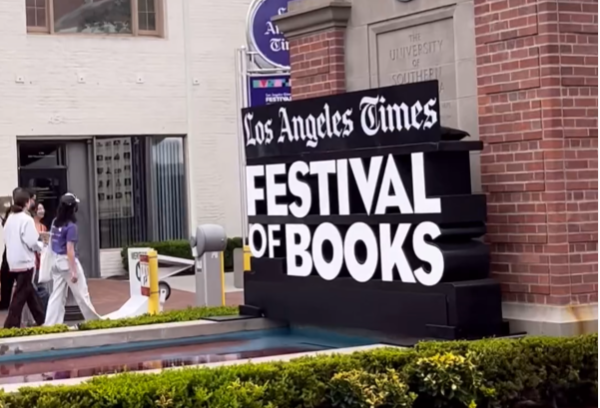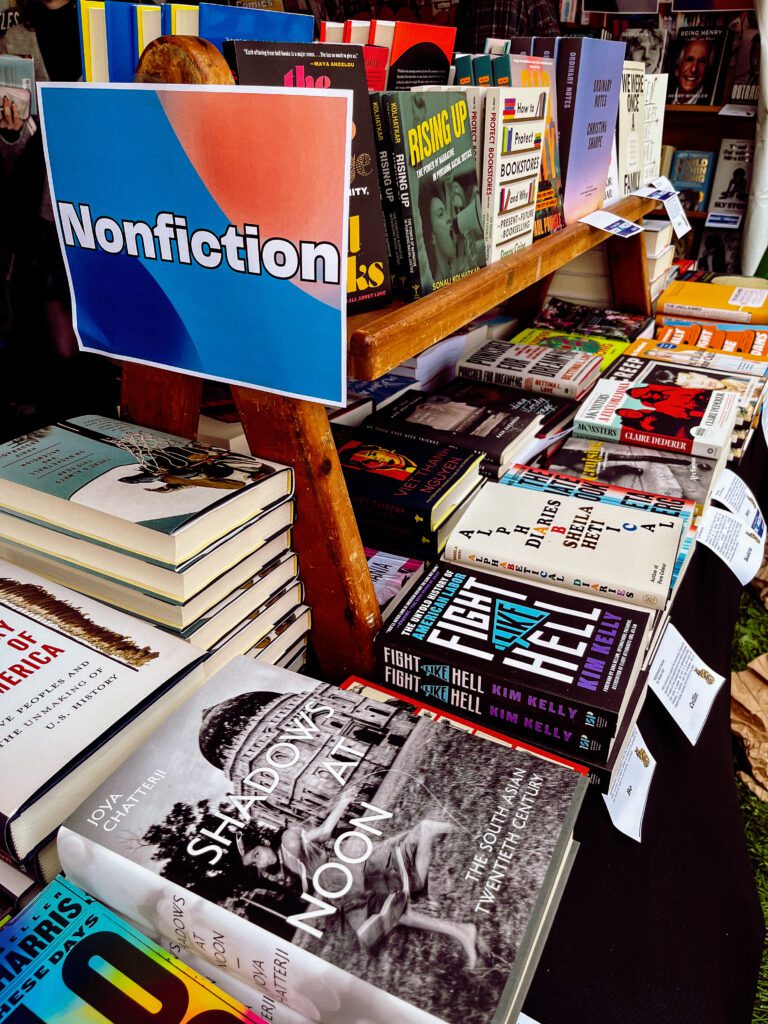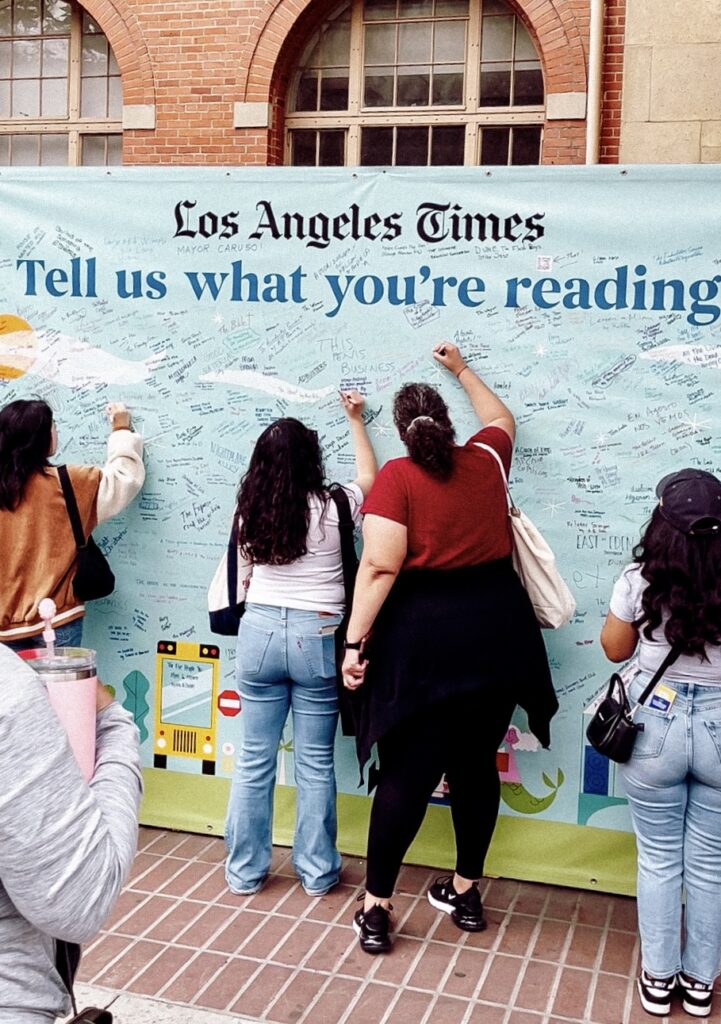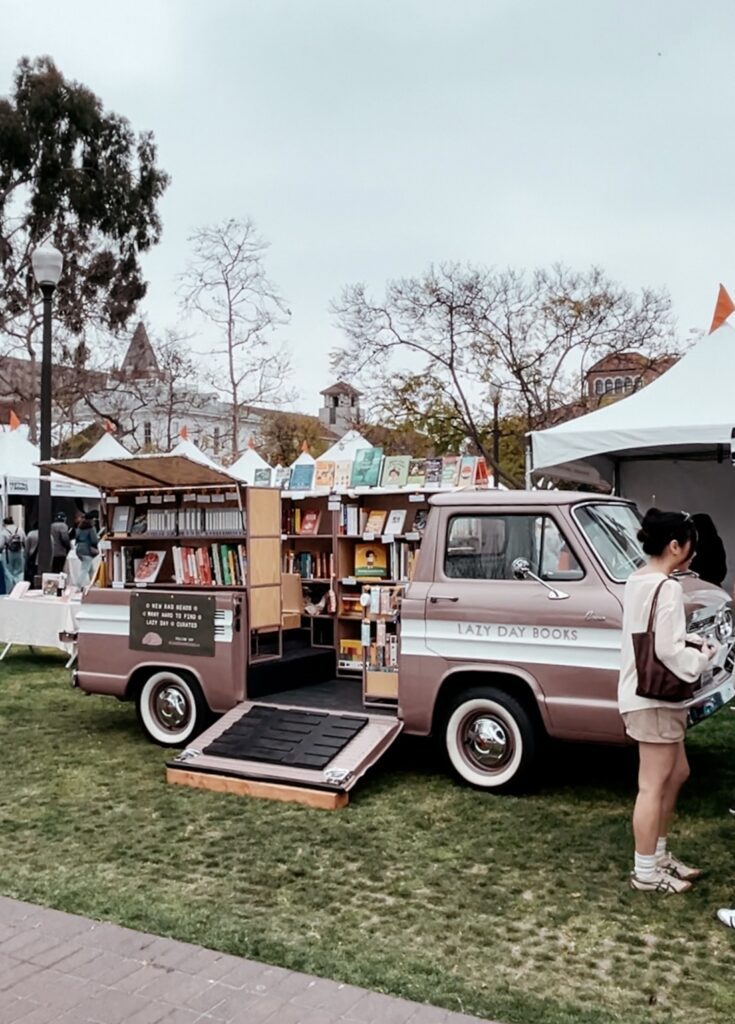
On April 20th, 2024, I went to my first Los Angeles Festival of Books. It was hosted at the University of Southern California (USC) campus, which alone should have informed me of the scale of the event, but I was nonetheless unprepared for its magnitude. There were panels and performances by authors, chefs, poets, and musicians; there were stalls from craftsmen selling book-themed art to independent presses to small bookstores selling their wares under large white tents. Was I enticed to partake in this exchange of goods? Well, yes. I can never say no to expanding my collection by a book or two.

As my friends and I wandered through the event, some peeling off to catch a panel or indulge in a much-needed aqua fresca to rehydrate on such a hot day, I eagerly waited for my panel to begin: Hell Hath No Fury: Powerful Women in Crime Fiction. The panel included Amita Akhtar, Jessica Knoll, K.T. Nguyen, and Karin Slaughter, talented writers in the crime genre. I was initially drawn to the panel to hear Jessica Knoll speak about her book, Bright Young Woman, a fictional novel based on a real crime, but from the perspective of the survivors rather than the killer. Set in the 1970s, a serial killer breaks into a sorority house in the middle of the night, where he brutally attacks and murders a group of girls, the sorority president witnessing the attacker flee the scene. She spends years trying to seek justice, dealing with men who don’t believe her, and a police force incompetent in catching and keeping the killer in custody. I think real serial killer Ted Bundy inspires the story, but Knoll never names the killer in the book, instead calling him “the Defendant.” She talks about her decision to omit his name, saying that she doesn’t want to relinquish power to the murderer. It is known that serial killers seek attention and revel in reliving their murders, which is why the majority of killers are caught revisiting the scene of their crimes. By wresting that power away from the killer and focusing on the true powerhouses who come alive in the book, the victims, Knoll sharpens her focus. This book honors the survivors, not the murderer.

Many of the women on the panel found writing about crime, murder, and death to be surprisingly cathartic. Akhtar joked about how she often based characters on people who annoyed her in her own life and thought it was fantastic that she was able to just kill them off in her books. Interestingly, Slaughter noted that women are so taken by crime stories because they are close to it themselves; either they have lived it in some way or are just taking notes for their own survival. Every young girl or woman has experienced some sort of trauma: catcalling, threats, or the horror of sexual assault. This made me think of my own experience, and found that I too, had a story. I was once followed several blocks by a man as I walked out of an event one night, leaving me no choice but to seek refuge in an apartment building that was not mine, hoping he would think that it was and leave me alone, as I texted my boyfriend about my whereabouts. This might be a mild case, but I guarantee men are not checking over their shoulders every time they leave the house. Women are sadly conditioned to do so.

As the panel continued, a phrase was brought up from Slaughter’s book, “speak from the scar, not the wound.” The sentiment behind this is that speaking from the scar is speaking from a place of healing, a place where you have allowed time to reflect and gain knowledge from your experiences. Speaking from the wound is visceral and raw, often still evolving and changing. Many of the women on the panel were survivors themselves or knew of survivors of sexual assault and could pinpoint when they had written from the wound versus the scar. The overall message of speaking from the scar can be applied to many types of writing, from fiction to nonfiction. At Sutherland House Experts, we specialize in authors who have spent many years if not decades in their respective fields, qualifying them as experts. We seek those who speak from the scar of life such that their wisdom inspires the world to listen and see that which they didn’t see before.
